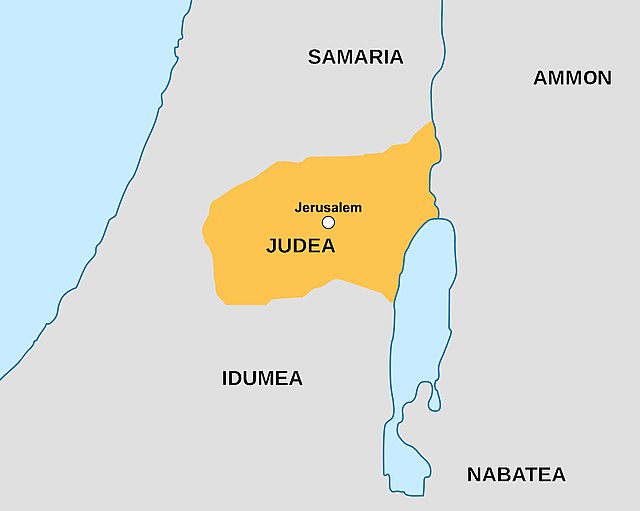The Battle of Beth Zechariah took place around May 162 BC during the Maccabean revolt fought between Jewish rebels under the leadership of Judas Maccabeus against an army of the Seleucid Empire, the Greek successor state (diadochi) to the Macedonian conquests that controlled Syria and Babylonia. The battle was fought at Beth Zechariah and was a Seleucid victory, with the rebels driven from the field in retreat. Judas's brother Eleazar Avaran died in combat with a war elephant. The defeat allowed the Seleucids to continue their campaign and besiege the Jewish holy city of Jerusalem.
1698 illustration of Eleazar fighting an elephant at the battle by Jan Luyken
Eleazar Avaran trampled by a war elephant. Adasa would be the last battle with significant war elephant use for the Seleucids, as the Romans would hamstring the remaining elephants in the next months. Illustration by Gustave Doré in 1866.
The Maccabean Revolt was a Jewish rebellion led by the Maccabees against the Seleucid Empire and against Hellenistic influence on Jewish life. The main phase of the revolt lasted from 167 to 160 BCE and ended with the Seleucids in control of Judea, but conflict between the Maccabees, Hellenized Jews, and the Seleucids continued until 134 BCE, with the Maccabees eventually attaining independence.
Jerusalem and Judea during the revolt
A 14th century Christian work depicting Antiochus IV praying to a horned idol at the Temple. The Book of Daniel describes an "abomination of desolation" being given authority over the Temple, as well as the daily offering and sacrifice ceasing.
Eleazar Avaran trampled by a war elephant (illustration by Gustave Doré in 1866)
Jewish National Fund stamp (1938) invoking the Maccabees





